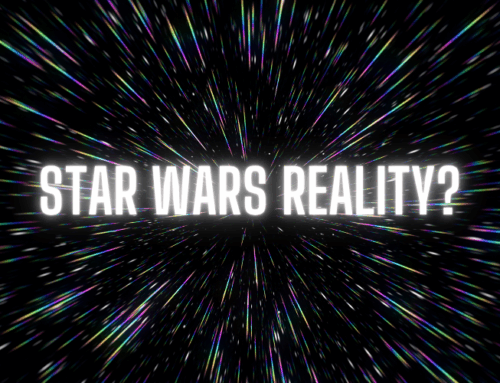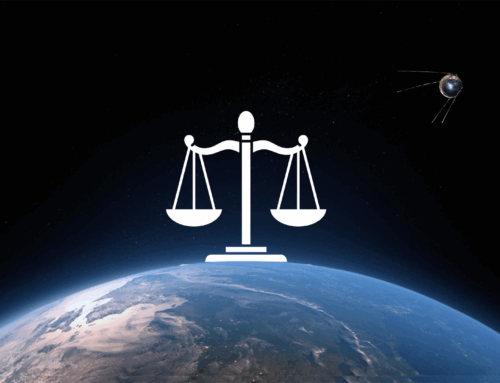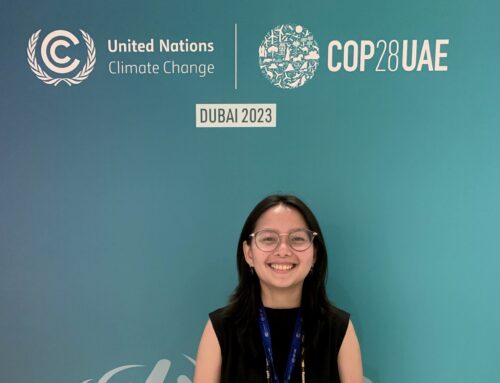On May 23, 2025, the Space Law and Policy (SLP) Project Group of the Space Generation Advisory Council inaugurated its new lecture series with a captivating event titled “Armed Conflicts in Outer Space: The Interplay Between Special Regimes”. This series forms part of the SLP research “A Multidisciplinary Approach to Armed Conflict in Outer Space”.
The lecture was given by Christopher D. Johnson, Director of Legal Affairs and Space Law at the Secure World Foundation and Adjunct Professor of Law at Georgetown University. His insights and expertise shed light on some of the most pressing and complex issues in contemporary space governance.
A domain meant for peace: the origins of space law
Johnson began by recalling the foundational vision of outer space as a domain of peace and cooperation. This idea, codified in the so-called Corpus Juris Spatialis, mainly in the 1967 Outer Space Treaty, has long served as one of the cornerstones of international space law. However, the Corpus was drafted in a geopolitical and technological context entirely different from today’s realities. Nowadays, the escalating militarization of space, emergence of dual-use technologies, and geopolitical tensions present alarming and unprecedented challenges.
Fragmented legal skies: the challenge of overlapping regimes
A central theme of the lecture was the fragmentation of the legal frameworks applicable to space. Rather than a unified and coherent system, space operations fall under a constellation of legal regimes, including general international law (notably, the UN Charter), international space law, international telecommunications law, international environmental law and other special regimes of international law along with national space law. Johnson referred to these as “special regimes,” each with its own legal logic and normative underpinnings. Although they were never intended to be exclusive, their overlapping applications often lead to legal ambiguity, particularly in scenarios involving the threat or use of force. For instance, if a satellite is deliberately disabled, does this constitute an illegal use of force under Article 2(4) of the UN Charter? Would such an act justify self-defence under Article 51? How would fundamental jus in bello principles apply in the vacuum of space? These questions are far from theoretical, given that several countries have already demonstrated kinetic and non-kinetic anti-satellite capabilities.
Different Responses to Internationally Wrongful Act in Space Domain
Moreover, Johnson examined how traditional legal mechanisms of response, such as countermeasures, retorsion, and reprisals, apply to the space environment. While they have straightforward application in terrestrial public international law, they face new challenges beyond the Kármán Line. Attribution, proportionality, and unintended consequences are all exacerbated in space, where infrastructure is often dual-use, and damage to a space asset can generate long-lasting orbital debris that impacts globally.
The lecture also focused on the interplay between international obligations and national space law implementation. While treaties provide the broad architecture, it is through domestic laws and policies that obligations are implemented, interpreted, and enforced. Inconsistencies in national approaches produce regulatory asymmetries related to inconsistent behaviours among countries. Without universal enforcement mechanisms, these differences may enable States to stretch or avoid international norms, especially under the justification of national security.
A deontic logic of International Space Law in Conflict Scenarios
One of Johnson’s most insightful contributions was the use of a deontic logic to classify international law into obligations, permissions, and prohibitions. International space law obliges States to conduct activities with due regard for others and to avoid harmful interference. It allows for the exploration and use of space by all States, in accordance with peaceful purposes. It prohibits the placement of weapons of mass destruction in orbit and the national appropriation of celestial bodies. Nevertheless, given the growing militarization of outer space, these categories blur and enforcement mechanisms remain limited or entirely absent.
In closing, Johnson offered an inspiring call to action, stating that the future sustainability and security of space will depend on the ability of law, policy, and international cooperation to evolve in step with rapidly changing dynamics above Earth. He encouraged scholars, practitioners, and young professionals to be involved in this process by building bridges between regimes, promoting transparency, and advocating for rules that can both prevent conflict and enable peaceful use of space.
This opening lecture set the tone for what promises to be a forward-looking and impactful series. As the cycle of meetings continues, the Space Law and Policy Project Group invites students, researchers, and professionals from all disciplines to participate in the upcoming sessions, contributing to a rich and multidisciplinary dialogue. Together, we will continue to explore the complex intersection of law, security, and policy in addressing the challenges of armed conflict in outer space.
| Watch the recording |
Next Event:
#2 Lecture “Space Debris Events: Trashing the Outer Space Environment”
📅 Date: 28th June 2025
⏰ Time: 10:30–11:30 AM EST
🎙️ Speaker: Jonathan McDowell
Author
This Article was written by Riccardo Ricchetti on behalf of the SLP Armed Conflicts in Outer Space Research team.
Riccardo is PhD Fellow in International Law at the Catholic University of Milan, specialising in Space Law and the legal implications of armed conflict in outer space. He serves as tutor at the Faculty of Law and a teaching assistant in courses on Public International Law, Human Rights, and International Criminal Law. He also coordinates the university’s teams for the Philip C. Jessup and Manfred Lachs Moot Court Competitions. Previously, He gained institutional experience at the European Parliament. He is an active member of the SGAC Space Law & Policy Group, the International Institute of Space Law (IISL), and the Italian Association of Aeronautics and Astronautics (AIDAA).






